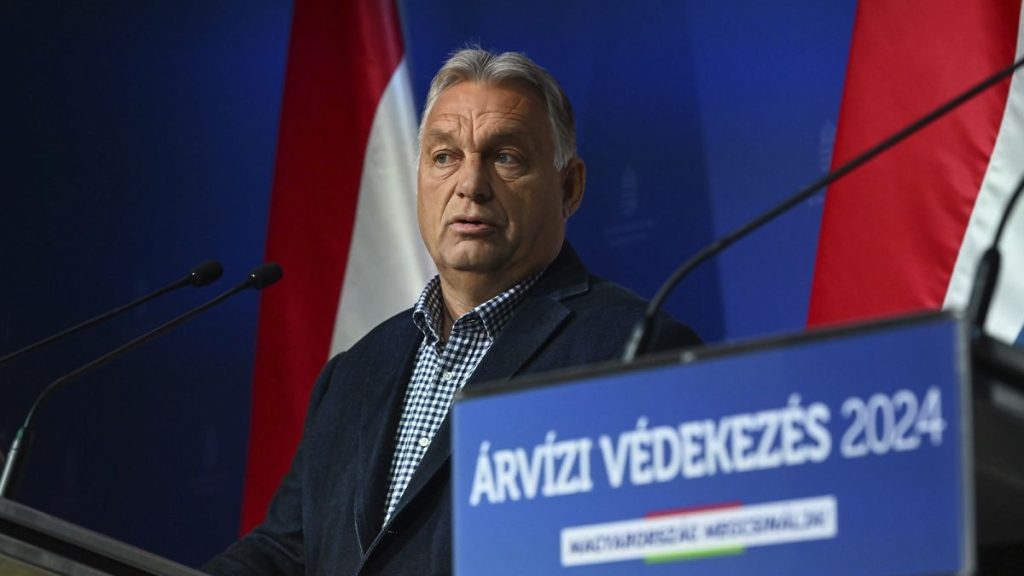The European Commission has escalated its legal action against Hungary’s controversial “national sovereignty law,” which Budapest claims is essential to protect national sovereignty but has been criticized by NGOs as a tool to suppress opposition voices. The Commission has taken Hungary to court over the law, arguing that it violates a range of fundamental rights. The lawsuit was announced following unsatisfactory responses from Budapest, and the matter has now been transferred to Luxembourg, where the EU’s top court is located. The Commission did not request any interim measures, such as the temporary suspension of the law, but a ruling is expected in the coming years. The law, approved in December with the support of Viktor Orbán’s ruling party, establishes the Sovereignty Protection Office to investigate individuals and organizations suspected of undermining national sovereignty and constitutional identity. Critics fear that the law’s broad mandate, vague definitions, and lack of judicial oversight could be used to target and silence dissenting voices.
Orbán has defended the law as necessary to protect Hungary from political interference, often accusing his detractors of being Western-paid agents. However, concerns have been raised about the potential misuse of the law to target civil society and independent journalists who do not align with Orbán’s political views. Transparency International Hungary and Átlátszó have already been targeted by the Sovereignty Protection Office. The Commission’s legal action, launched in February, highlighted concerns that the law violates fundamental values and legal guarantees, such as democracy, privacy, data protection, freedom of expression and association, and the presumption of innocence. The United States, European Parliament, Venice Commission, and Amnesty International have also criticized the law for its impact on democratic governance and the rule of law.
The ongoing dispute between Brussels and Budapest comes at a contentious time, with Hungary facing criticism for various actions, including refusing to pay a €200 million fine, threatening to bus migrants to Belgium, and easing work permits for citizens of Russia and Belarus. Orbán is set to address the European Parliament as part of Hungary’s presidency of the EU Council, although the presidency is under boycott due to Orbán’s meeting with Vladimir Putin in July. The European Commission’s decision to take legal action against Hungary’s national sovereignty law reflects the deepening divide between the EU and Budapest, as concerns grow about the erosion of democratic principles and the rule of law in Hungary. The outcome of the legal proceedings will be closely watched as a test of the EU’s ability to uphold fundamental rights and values within its member states.
Critics of the national sovereignty law, including civil society organizations and independent media outlets, have raised concerns about the potential abuse of power by the Sovereignty Protection Office, which is granted sweeping authority to investigate and publish findings on individuals and groups perceived to threaten national sovereignty. The lack of judicial oversight and due process rights for those targeted by the office has raised alarm about the potential for politically motivated targeting and silencing of dissenting voices. The European Commission’s decision to pursue legal action against Hungary underscores the seriousness of the concerns raised about the law’s impact on fundamental rights and democratic values within the EU. The case highlights the ongoing struggle to balance the protection of national sovereignty with respect for the rule of law and human rights, and it serves as a critical test of the EU’s commitment to upholding these principles within its member states.
The European Commission’s decision to escalate its legal action against Hungary’s national sovereignty law reflects growing concerns about the erosion of democratic principles and the rule of law in Hungary. The contentious law, which establishes the Sovereignty Protection Office and grants it sweeping powers to investigate and publish findings on individuals and groups deemed to undermine national sovereignty, has been criticized for its potential to target and silence opposition voices. The legal proceedings will be closely watched as a test of the EU’s ability to uphold fundamental rights and values within its member states, and the outcome could have far-reaching implications for the future of democratic governance in Hungary and the broader EU. The ongoing dispute between Brussels and Budapest, amid a series of controversial actions by Hungary, underscores the deepening divide between the two sides and the challenges faced in balancing national sovereignty with respect for human rights and democratic norms.













